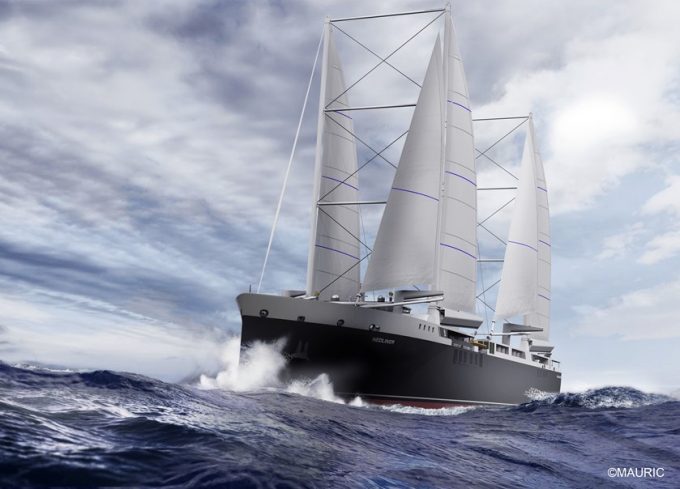Neoline blows in as 'a different type of shipowner and operator'
It is becoming possible for some ships to save a portion of their emissions by ...
ATSG: UPDATEMAERSK: QUIET DAY DHL: ROBOTICSCHRW: ONE CENT CLUB UPDATECAT: RISING TRADEEXPD: TRUMP TRADE LOSER LINE: PUNISHEDMAERSK: RELIEF XPO: TRUMP TRADE WINNERCHRW: NO JOYUPS: STEADY YIELDXPO: BUILDING BLOCKSHLAG: BIG ORDERLINE: REACTIONLINE: EXPENSES AND OPERATING LEVERAGELINE: PIPELINE OF DEALS
ATSG: UPDATEMAERSK: QUIET DAY DHL: ROBOTICSCHRW: ONE CENT CLUB UPDATECAT: RISING TRADEEXPD: TRUMP TRADE LOSER LINE: PUNISHEDMAERSK: RELIEF XPO: TRUMP TRADE WINNERCHRW: NO JOYUPS: STEADY YIELDXPO: BUILDING BLOCKSHLAG: BIG ORDERLINE: REACTIONLINE: EXPENSES AND OPERATING LEVERAGELINE: PIPELINE OF DEALS

Construction will commence on a wind-powered ro-ro vessel at the end of the year, with vehicle shipper Renault among the backers.
Following a call for tenders, sustainable shipping project Neoline announced yesterday the selection of Neopolia to build its first two vessels, with wind as the main propulsion.
Neoline president Michel Pery said: “Our team is fully dedicated, with Neopolia’s support and all our partners, to mobilise the necessary financing to realise this project.
“We’re very pleased to have been able to select the offer of a local player, because we are convinced sailing propulsion is a new sector of excellence for French shipbuilding.”
According to the company, the vessels are expected to generate an 80-90% cut in CO2 emissions, compared with existing vessels.
One source told The Loadstar Neoline had designed and would operate the vessels.
International Windship Association (IWSA) general secretary Gavin Allwright said: “We are delighted to see Neoline taking another significant step towards the building of these two wind propulsion vessels.
“There is a significant upswing in interest in wind-assist and primary wind propulsion designs and technologies in the industry.
“With rapid, deep levels of decarbonisation required in shipping, any technology that can deliver this level of propulsion – free at the point of use – has to be a major consideration.”
Shipping services are expected to launch at the end of 2021, aiming to connect Saint-Nazaire to the US east coast and Saint-Pierre & Miquelon.
Another source told The Loadstar if wind-assisted propulsion were to take off, it would be a “win” for shippers, carriers and the climate, but would “hurt” the oil industry.
“The oil majors are counting on the shipping sector’s 5% of global oil consumption growing for decades,” said the source. “Neoline, Maersk and even ICS see it shrinking to zero, so it is an interesting time to be in shipping.”
Alongside Renault, Manitou Group and Groupe Beneteau are also backing the project.
The source said while Renault and other cargo owners like to be seen to be doing “green things”, there were also definite economic positives to consider.
“They are interested in the potential freight savings from slashing fuel consumption, typically the single biggest operating expense. They’re exploring how to use time flexibilities in their supply chains to cut bunker fuel out of the equation.”
Comment on this article